In Nicholas Kharkongor’s film Axone (2020), a group of friends from the Northeast struggle to find a space to cook their traditional dishes. This isn’t just a scene from a film—it imitates the daily reality of many Northeasterners in Delhi, who are often restricted from eating or cooking their food due to suspicion and stigma. In densely built urban spaces like Delhi, the smell of curry from one floor easily travels to other floors and corridors. For many, cooking something like axone or bamboo shoots without being caught, ridiculed, or drawing unwanted attention is nearly impossible.
Northeast India, infamously portrayed in the national imagination as a region of violence, militarisation, insurgency, and exoticised stereotypes about “animal eaters,” is mostly viewed with suspicion by the rest of the country. In Delhi, renting a room or eating tribal food in a university hostel often invites distrust. People insult or make disrespectful remarks about the aroma of Northeastern curries. Sometimes, we are told to “avoid eating such food as it can cause illness.” Once, when I had an upset stomach, I was asked if I had eaten Northeastern food. This was both strange and blatantly discriminatory — telling someone they would fall sick from eating the same food they have eaten their entire life.
For Northeastern students in Delhi, cooking traditional food is not just a matter of taste but an act of resistance, courage, and cultural assertion.
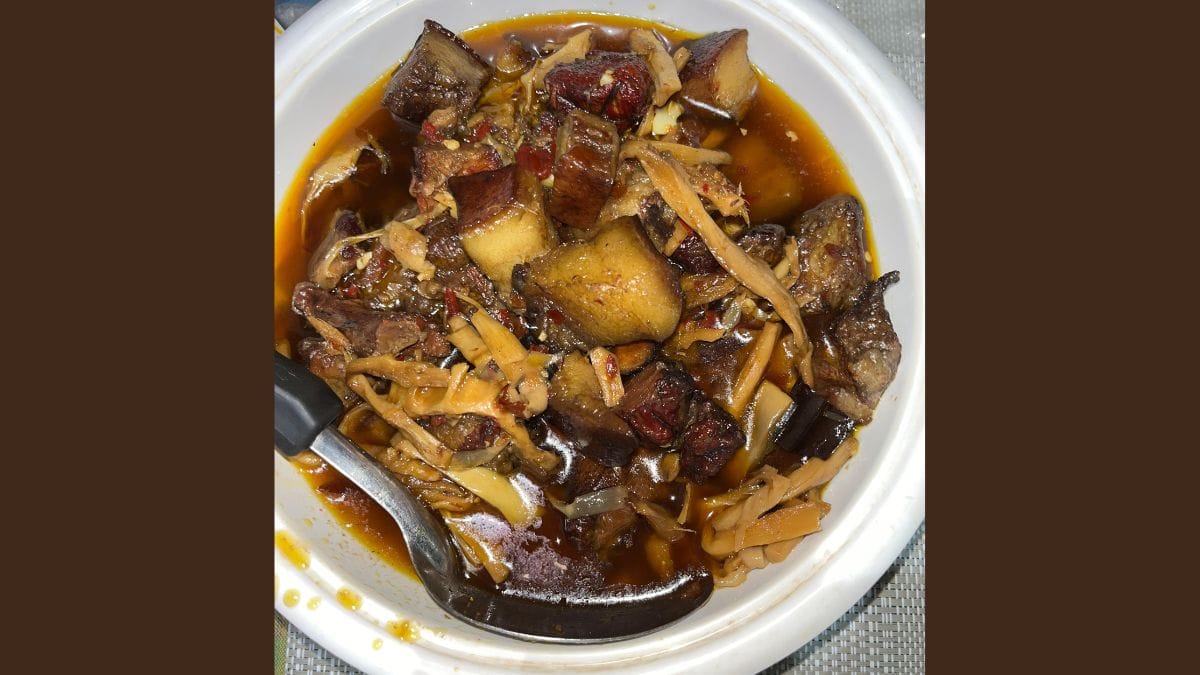
Also read: Sexualise, dehumanise Northeast people—Indian YouTubers have a new formula for more views
JNU’s Barak Hostel and NE students
At the heart of this issue is the Barak Hostel at Jawaharlal Nehru University. In this academic space, students from the Northeast are deprived — if not consciously, then structurally — of their right to eat their food without harassment.
The messes in JNU’s 19 hostels, including the new Barak Hostel primarily for Northeastern students, lack true diversity. Most regional cuisines find some representation in the menu: idlis, upma, and poha for breakfast; khichdi and kadhi-pakora for lunch; biryani and paneer for dinner. But for Northeastern students, across the long history of this public university, there’s a glaring absence of anything familiar from home. The joy and comfort others find in eating familiar food is not extended to them.
Lawmsangzuali from Mizoram, who recently graduated from JNU with a doctoral degree, said the mess food was affordable, but it was never her food. “I ate there just to get by, not to feel satisfied.”
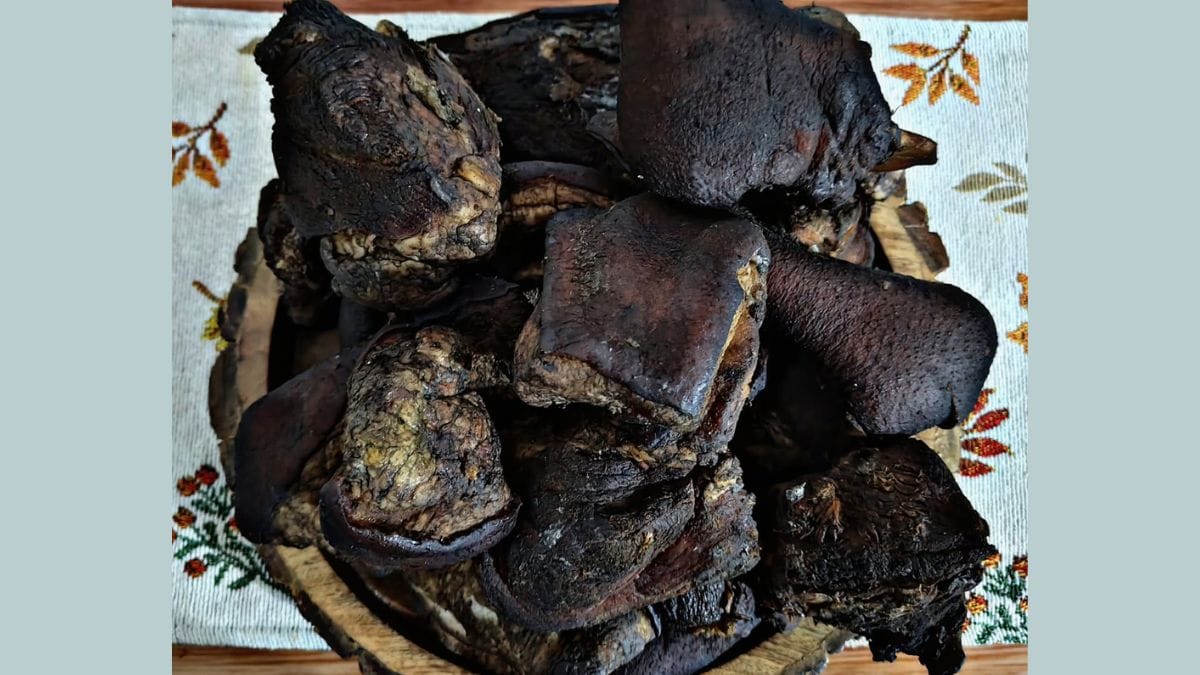
Matti Bakor War from Meghalaya noted that the menu, as diverse as it appears, is neither inclusive nor accepting of cuisine from the Northeast.
“During a hostel election, a candidate from Manipur proposed introducing some food items from the region. The idea was met with disdain and apprehension. Needless to say, the candidate lost,” said Bakor War, a doctoral student at JNU’s Centre for English Studies. “The topic of inclusivity rings hollow on campus.”
Anna Sireiliu, a PhD candidate in visual studies at JNU, recalled how a friend once tried cooking chicken with less masala, as done back home, but gave up after an intense backlash.
“I’ve even been told to hide the labels on my non-veg pickles—beef pickle, chicken pickle—in the mess,” said Kelly A Khyriem, another doctoral student from Meghalaya.
Kim from Manipur said that what is often dismissed as trivial in mess menu demands is deeply tied to students’ identities. In cities, landlords frequently deny tenancy to people from the Northeast based on stereotypes about their cuisine, with comments like “yeh log kuch bhi kha lete hain (these people eat anything)” or “inke khaane se badboo aati hai (their food gives a foul smell)”. This bias extends to hostels, where many feel uneasy eating their food even in rooms, fearing judgment while also coping with academic stress.
Even the only Northeast dhaba on campus avoids serving most regional dishes, fearful of rejection by the majority.
“Whenever I go to the mess with my meat, bamboo shoot, or Axone pickles, I either choose a place with fewer people or take rice back to my room,” said Schulu Duo, a postgraduate student of sociology. “I am scared people will complain about the food and I’ll be kicked out of the mess.”
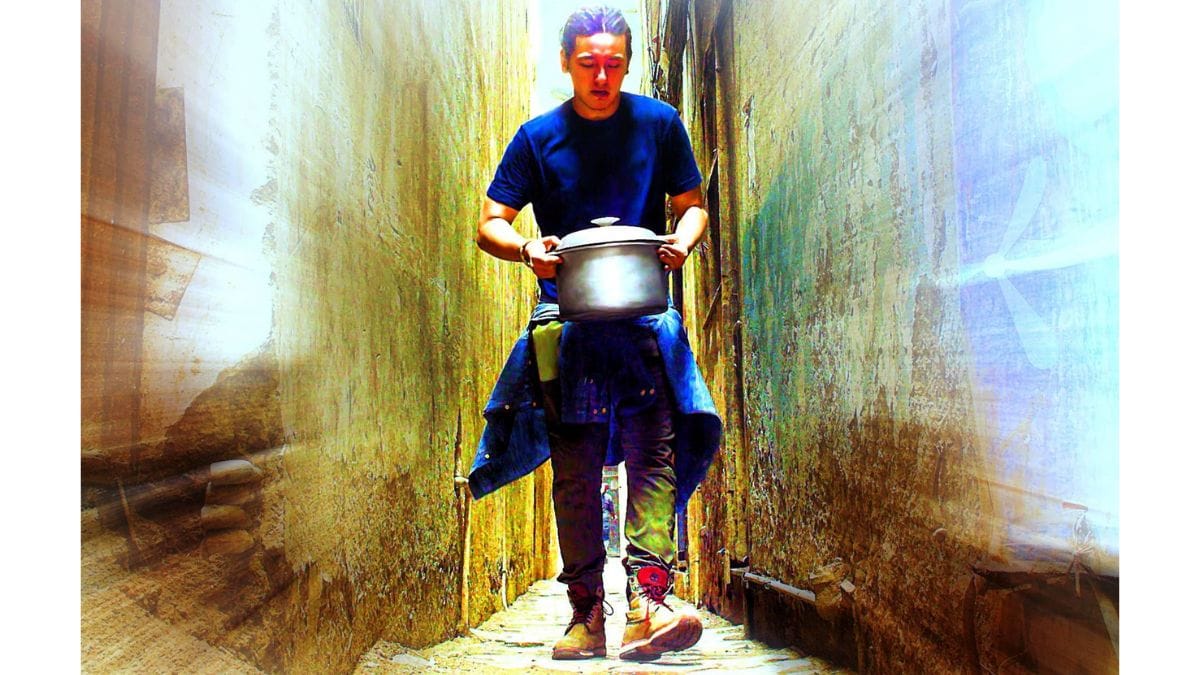
Also read: Fermentation and Northeast Indian cuisine
Systemic barrier
In Indian cities and universities, people from outside the Northeast never have to hide their food, eat in secret, or face ridicule for their choices. So, it’s not surprising that they dismiss the Barak Hostel row or difficulties faced by Northeast students as trivial. It’s much like how Indians abroad are judged or mocked for eating Indian food, often reduced to the “smells like curry” stereotype. Many Indians overseas still carry food from home or seek Indian restaurants because everyone wants to eat in peace. Barak Hostel could serve as one such space for Northeast students, allowing them not just access to their food, but also a sense of peace and belonging.
Mimum Apang from Arunachal Pradesh, a Master’s student of sociology, highlighted a structural and systemic barrier: JNU hostel menus are set by majority consensus, but Northeastern students are a minority in each hostel due to hostel allocation rules. Their preferences are never reflected in decisions, forcing them to adapt to unfamiliar and unappealing food, often leading to health problems and mental distress.
Ngiplon Rachel Chohwanglim from Nagaland said that she and her friends usually cooked in their rooms or the pantry without trouble — except once, when someone asked them to close a window because of the smell. Pranjit Gogoi from Assam, pursuing his BA in Pashto, recalled similar remarks about the aroma of his chicken with bamboo shoots.
“I just hope we won’t face the same concerns at Barak Hostel,” he said.
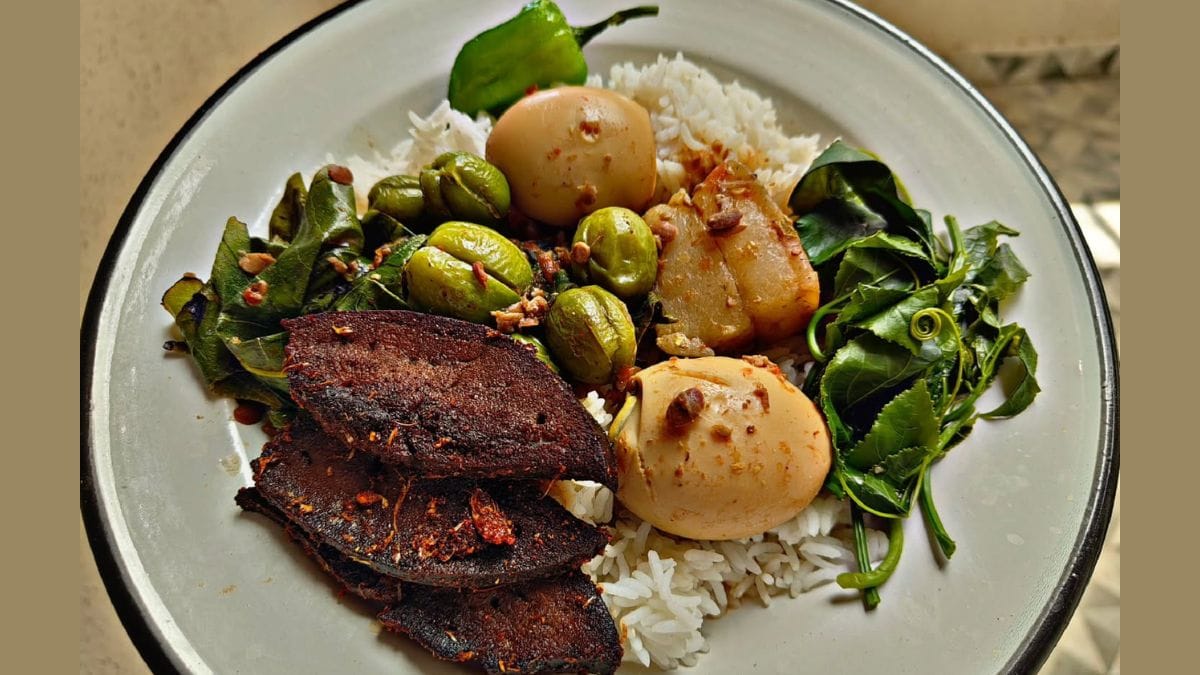
Mangyanger Longkumer from Nagaland emphasised that ingredients like Axone and smoked meat are central to Naga culture, yet such practices are threatened by neglect and dominant narratives that favour homogenised global cuisines.
Pansy Jami from Nagaland pointed to deep-rooted cultural discrimination Northeastern students face. Because traditional dishes are labelled ‘smelly’ or ‘unhygienic,’ hostel authorities restrict them. This forces students to abandon their cultural diets, eroding both identity and well-being. Despite repeated appeals, the response has been lacking. Students demand dedicated cooking spaces, a Northeast cultural hostel, and inclusion of Northeastern dishes in mess menus—not segregation, but respectful coexistence. The Barak Hostel row at JNU shows an urgent need for reform. Universities must revise food policies and uphold the constitutional right to cultural practices.
The allotment of Barak Hostel to Northeastern students should not be seen as segregation. It is a necessary safe space to protect confidence, self-respect, and mental health in a city where the fundamental right to eat what you choose is vilified.
Akishe L Jakha is a film scholar from Nagaland, with specialisation in Nagaland’s film and media history, mainstream cinema and material practice. He tweets @AkisheJakha. Views are personal.
(Edited by Prashant)



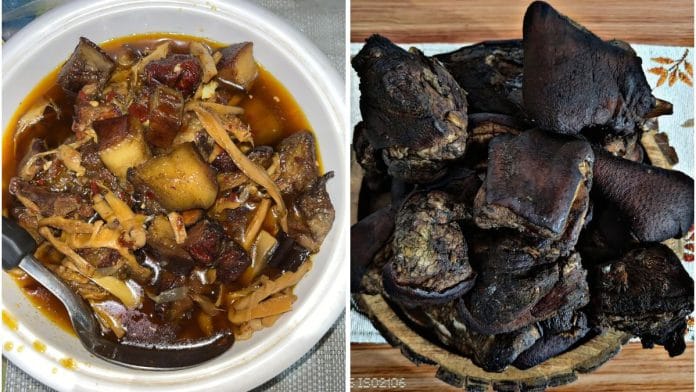



It will be sound to hear that approximately 38 mp are come from seven sister states of India.
Indian will celebrate 79 th independence day in Aug 2025, where it get independent in 1947, the Indian parliament is still working and each and every work of the indian parliament executive with the proper rule and respect for cultural preservation, because indian parliament has Diversify cultures. WHY THE INDIAN PARLIAMENT DOESN’T LISTENING THE PAIN OF 38 MP TO AVAIL THEIR TRADITIONAL FOOD AT PARLIAMENT’s CANTEEN. But no media raise this issue, the pork recipe should available for 38 mp from seven sisters state of India. Here is very big manipulator is stand of MEDIA, it always seek attention for creating confusion.
When Hindus object beefs in students hostel the Anti Hindu pro Muslim terrorists jump in and say food is personal choice, freedom under article 14,so don’t restrict, Muslim khagrass party and Italians corrupt convicted are in forefront,doesn’t matter whether hurt the sentiments of Hindus to please Anti Hindu Muslims it’s necessary,when pork comes the very same Anti Hindu bastards shout loudly it’s against islam,it’s hurt Anti Hindu Muslims sentiments.our worry is that with all Anti Hindu Anti national acts some Hindus are with Muslim khagrass party and lick suck clean the dirtiest ass of Italian Christian Muslim corrupt convicted dogs?we have to check the DNA of such hindus.jai Hindu unity.
This assertion of identity and culture bears an eerie resemblance to the fat acceptance movement – poor health lionised and sought to be normalised.
What an idiotic article -full of asinine arguments.
I have stayed in Nagaland for over two years. And I know first hand how “outsiders” are treated in Nagaland. I saw with my own eyes how xenophobic and violent the local people are towards “outsiders” like us.
North-eastern people, especially from the tribal majority states of Nagaland, Mizoram and Meghalaya, often wish to have us (mainland Indians) believe that they are very naive and innocent.
Having lived in each one of these sates, I know first hand what the ground realities are.
Will any Five Star Hotel serve Dog Meat curry or Cat Meat Fry in any restaurant across India ?? Do you know that Dog Meat , Cat Meat and Snake Meat are freely available in the Markets of Nagaland and few other North Eastern states ?? So, should it be served in JNU Hostel Mess ?? Let them go home & eat it !